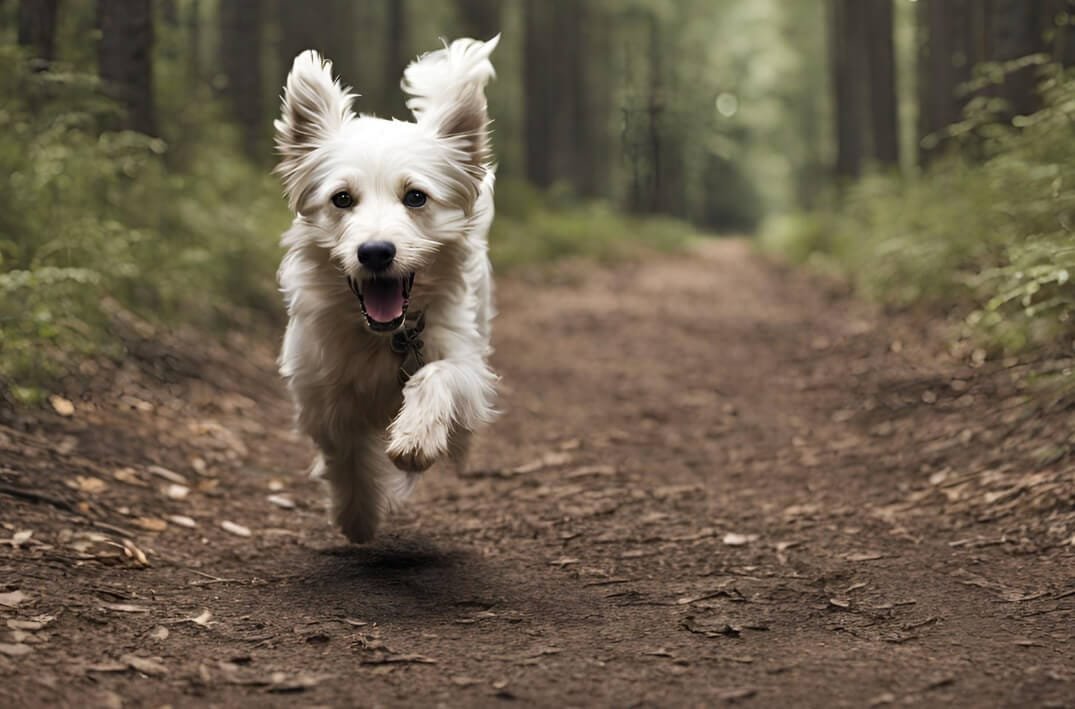Understanding the Causes and Prevention
As a dog owner, there’s nothing more alarming than the moment your furry friend dashes out the door, leaving you in a state of panic. Whether it’s during a casual stroll or a simple trip to the mailbox, the fear of your dog running away is a common concern. But what drives dogs to bolt? Understanding the reasons behind this behavior can help you take preventive measures to keep your beloved pet safe.
Reasons Dogs Might Run Away
According to Dr. Amy L. Pike, a board-certified veterinary behaviorist, several factors can motivate dogs to escape. While hunting for food might be more common in cats, dogs can also be driven by their instincts. Here are some typical reasons dogs might run away:
- Chasing Instincts: Dogs often run after passing dogs, people, or even small animals like squirrels. Their instinctual drive to chase can overpower their training.
- Lack of Training: Young dogs, who haven’t yet learned to wait at the door, are particularly prone to running. Similarly, older dogs may escape due to confusion from age-related issues like dementia or hearing loss.
- Boredom: Dogs that lack mental and physical stimulation may seek excitement outside their home, especially if they feel confined or restless.
- Anxiety or Fear: Situations that provoke fear, such as loud noises or unfamiliar environments, can trigger a fright-and-flight response, leading dogs to run away.
- Reproductive Drive: Intact dogs (those not spayed or neutered) may venture out in search of a mate, especially if they sense a nearby female in heat.

Can Certain Breeds Be More Prone to Running Away?
Dr. Pike emphasizes that any breed can run away if motivated enough. However, younger dogs may be more prone to this behavior due to their lack of experience and training. Older dogs might also escape if they are confused or startled by changes in their environment, such as moving to a new home.
Common Triggers for Escaping
Dogs are intelligent creatures and can easily learn routines and triggers. For example, the sound of the doorbell can signal an opportunity to dash out. Other common triggers include:
- Distractions: A squirrel or other animal running by can be too tempting for an adventurous dog.
- Stress: If left alone, dogs may feel anxious and try to escape when an opportunity arises.
- Sudden Noises: Loud sounds, such as fireworks or a car backfiring, can trigger a fear response, prompting dogs to run away in search of safety.

Preventing Your Dog from Running Away
If you notice signs that your dog may attempt to escape, it’s crucial to take action. Here are some strategies to keep your dog safe:
- Consult Your Veterinarian: If your dog displays anxiety or fear, it may indicate an underlying health issue. Your vet can help identify any medical causes and recommend treatment options.
- Training: Teach your dog an alternate behavior, like waiting at a distance when you open the door. Make this behavior rewarding with treats or praise to encourage compliance.
- Management: For known door dashers, consider using baby gates or keeping your dog in a closed room when opening doors. Crates can also be a safe option while training is underway.
- Safety Measures: When walking your dog, ensure they wear an escape-proof harness. A double-leash system can also provide extra security. Regularly inspect your yard for potential escape routes, such as holes in fences or climbable structures.
- Mental Stimulation: Keep boredom at bay with interactive toys and regular exercise. Activities like agility training or scent work can engage your dog’s mind and body.
- Important Commands: Invest time in teaching essential commands like “stay” and “come.” These commands can be invaluable in preventing your dog from running away.
Preparing for the Unexpected
Despite your best efforts, dogs may still find a way to escape. To enhance the chances of a safe return, take these precautions:
- Identification: Ensure your dog wears an up-to-date collar with an ID tag.
- Microchipping: Microchip your dog and register the chip with an organization such as AKC Reunite. This can help reunite you with your pet if they are lost.
- GPS Tracking: Consider using a GPS device that tracks your dog’s location. Some devices even alert you when your dog nears the boundaries of your property.

